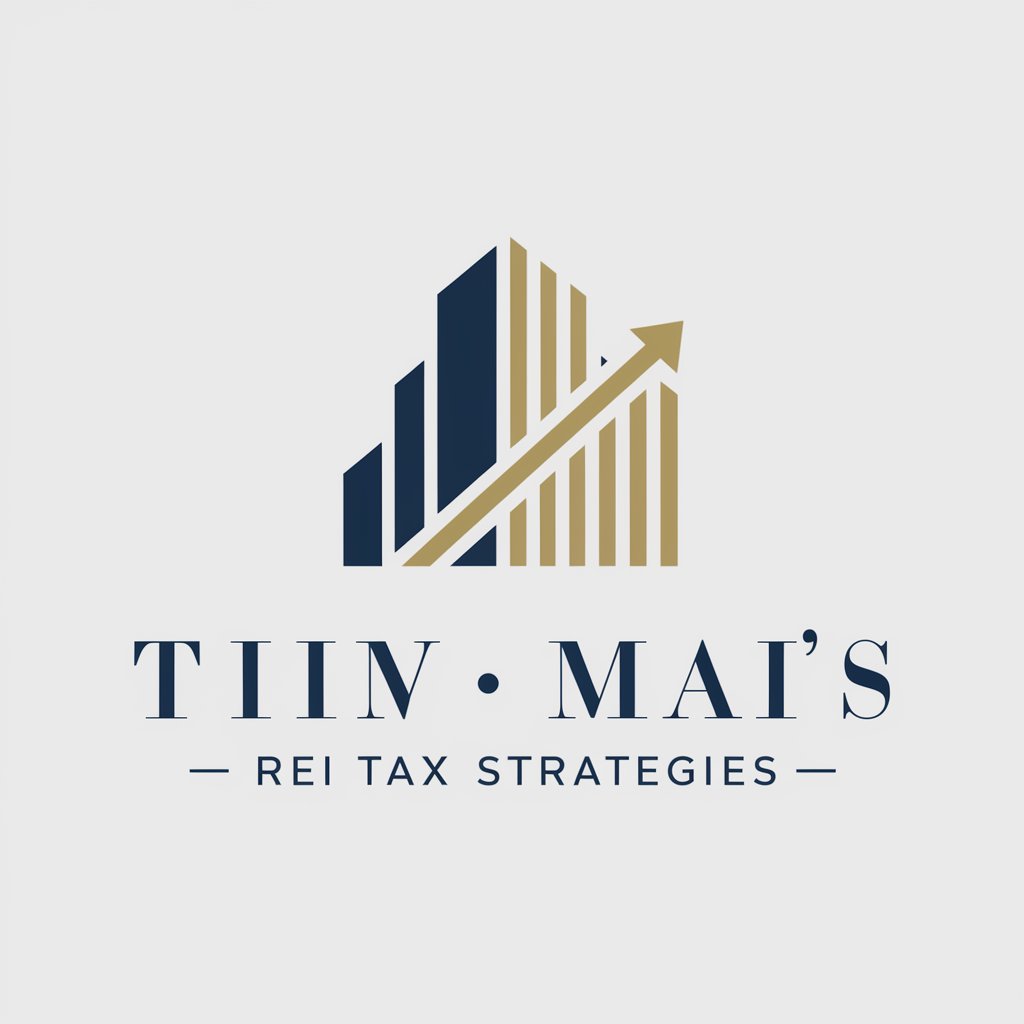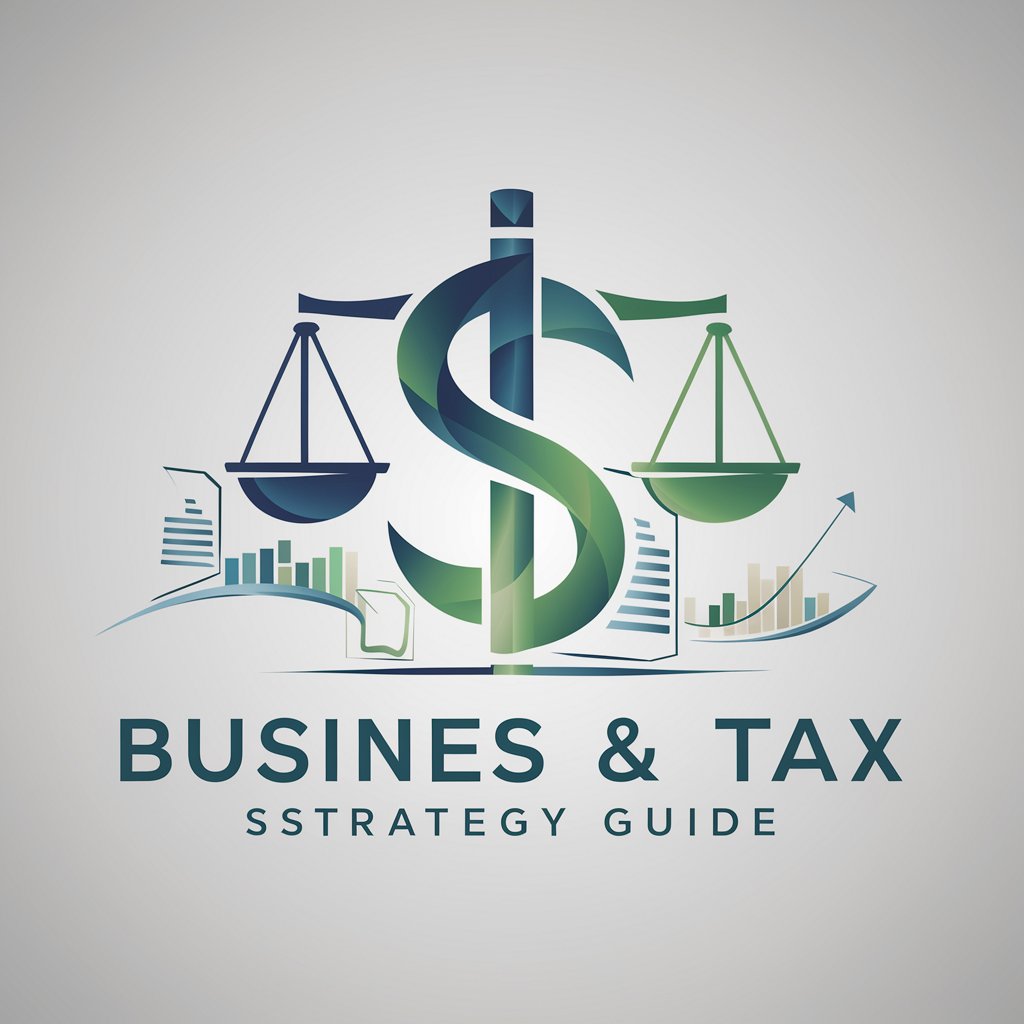
Tim Mai: REI Tax Strategies - Tax Strategy Guidance

Welcome! Let's explore smart tax strategies for your real estate investments.
Maximize Your REI Tax Benefits
How can real estate investors maximize tax benefits through 1031 exchanges?
What are the key strategies for marketing to high-net-worth individuals in real estate?
Can you explain the tax implications of different types of real estate investments?
What are the best practices for using social media to attract accredited investors?
Get Embed Code
Introduction to Tim Mai: REI Tax Strategies
Tim Mai: REI Tax Strategies is a specialized service designed to assist real estate investors, particularly those involved in real estate syndications and funds, with optimizing their tax situations. The service is centered around providing strategic tax planning and advice tailored to the unique needs of real estate investment entities. By leveraging tax codes and regulations to the benefit of investors, Tim Mai aims to maximize tax efficiency, reduce liabilities, and enhance overall investment returns. An example scenario illustrating the purpose of Tim Mai: REI Tax Strategies could involve a real estate syndication looking to execute a large-scale investment. The service would assist in structuring the investment to take advantage of specific tax benefits, such as using 1031 exchanges to defer capital gains taxes when selling one investment property and purchasing another, thereby preserving more capital for reinvestment. Powered by ChatGPT-4o。

Main Functions of Tim Mai: REI Tax Strategies
Tax Optimization for Real Estate Investments
Example
Advising on structuring real estate acquisitions to maximize tax advantages.
Scenario
A real estate fund is considering acquiring a new property portfolio. Tim Mai's service would provide insights on how to structure the acquisition to minimize tax exposure, perhaps by advising on the setup of legal entities or the use of debt financing in a way that aligns with tax-efficient practices.
1031 Exchange Planning and Execution
Example
Facilitating the process of 1031 exchanges for investors looking to reinvest proceeds from property sales.
Scenario
An investor plans to sell a rental property and wants to reinvest the proceeds without incurring immediate capital gains taxes. Tim Mai: REI Tax Strategies would guide the investor through the 1031 exchange process, ensuring compliance with IRS rules and timelines, thereby deferring taxes and allowing the investor to leverage the full proceeds towards the next investment.
Tax Compliance and Reporting for Real Estate Entities
Example
Ensuring accurate tax reporting and compliance for real estate syndications and funds.
Scenario
A real estate investment trust (REIT) requires assistance with complex tax filings, including the distribution of taxable income to investors. Tim Mai's service would ensure that the REIT complies with all relevant tax codes, accurately reports its income, and takes advantage of any available deductions or credits.
Ideal Users of Tim Mai: REI Tax Strategies Services
High-Net-Worth Real Estate Investors
Individuals with significant real estate portfolios stand to benefit from tailored tax strategies that can minimize their tax burden and enhance the returns on their investments. These investors often face complex tax situations that require specialized expertise.
Real Estate Syndications and Funds
Entities that pool investor money to purchase and manage real estate can leverage Tim Mai's services to optimize their tax situation. By doing so, they can improve their value proposition to current and potential investors through efficient tax planning and compliance.

How to Use Tim Mai: REI Tax Strategies
1
Begin by accessing a free trial at yeschat.ai, available without any login requirement or the need for a ChatGPT Plus subscription.
2
Navigate through the provided materials to familiarize yourself with the comprehensive real estate investment (REI) tax strategies developed by Tim Mai.
3
Utilize the search functionality to find specific topics or questions related to real estate investments, tax planning, and syndications.
4
Apply the insights and strategies from the materials directly to your real estate investments, ensuring to adapt the advice to your specific situation for maximum benefit.
5
For an optimal experience, consistently monitor updates to the platform for new strategies and information, and consider reaching out for personalized advice if available.
Try other advanced and practical GPTs
Market Marvin
Empowering your crypto journey with AI

Eating Disorders
Empowering recovery through AI

Presentation Assistant
Transform ideas into impactful presentations

结构化Prompt工程师
Crafting Precision with AI

VibroMaster GPT
AI-powered Vibration Diagnostics

创业大师
Empowering Entrepreneurship with AI

日本語議事録作成専門家
AI-powered Japanese Minutes Creation

KnowledgeBaseGPT
Elevate Your Chatbot with AI-Powered Intelligence

"Hvetjandi verkfræðingur"
Empowering Creativity and Innovation with AI
Water Softeners
Transforming Hard Water into Soft Bliss

Costume Idea Generator | Multilingual
Transform imagination into reality with AI-powered costume ideas.

Outrank the Competition
Elevate Your Content with AI

FAQs on Tim Mai: REI Tax Strategies
What makes Tim Mai's REI Tax Strategies unique?
Tim Mai's REI Tax Strategies are tailored specifically for real estate investors, focusing on maximizing tax benefits through syndications, funds, and individual investments. These strategies are designed based on years of expertise and a deep understanding of real estate investment dynamics.
Can I apply these strategies to both residential and commercial real estate investments?
Yes, the strategies provided cater to both residential and commercial real estate investments. They cover a wide range of scenarios, including 1031 exchanges, tax deferral options, and structuring investments for optimal tax benefits.
How often are the strategies and information updated?
The platform aims to provide the most current and applicable information, updating strategies as tax laws and real estate market conditions evolve. It's recommended to check back frequently for the most recent advice.
Is there support for understanding complex tax scenarios?
While the platform offers in-depth materials, for complex tax scenarios or personalized advice, it's recommended to consult with a tax professional. The strategies can serve as a foundation for discussion with your advisor.
Are there resources for beginners in real estate investing?
Yes, the platform includes materials that cater to both novice and experienced investors. For beginners, there are foundational strategies and guides that introduce basic concepts of real estate investments and tax planning.




